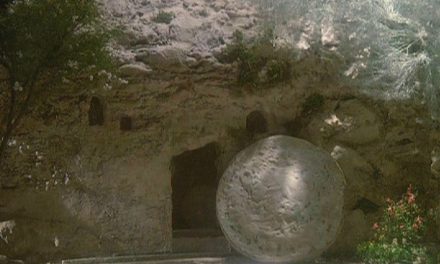What should the belief of Christians be about private property? Should one make wealth? How should one use private property and the wealth acquired? George Paul Answers.
God as the absolute owner and we as the stewards of His wealth
The right for private property was established by God in the Bible. This was done when God asked Adam and Eve to “replenish the Earth, and subdue it.” Gen 1:18; God while asking Adam to replenish and subdue the earth transferred His creation to Adam. Through this transfer Adam and Eve owned the earth to subdue it. Moreover, Adam and Eve where not absolute owners of the earth, since God being the creator was its rightful owner. However, God granted Adam and Eve ownership primarily as its stewards.
Moreover, God is the rightful owner who entrusts his wealth to us, His stewards. This is confirmed frequently by God when He declares through David, The earth is the LORD's, and everything in it, the world, and all who live in it; Psalm 24:1; and also in Exodus 19:5b. Moreover the Lord also says, “The land shall not be sold forever: for the land is mine; for ye are strangers and sojourners with me. Lev 25:23;” This is confirmed in the New Testament by Jesus Christ and the apostles. 1 Corinthians 10:26; John 1:3; Matthew 21:33-45; 25:14-28; Mark 12:1-12;
Moreover we observe in Deut 8:18; But thou shalt remember the LORD thy God: for it is he that giveth thee power to get wealth; So we conclude since the multiplication of wealth comes form God even the multiplied wealth belongs to God and we become stewards of the multiplied wealth.
Motivation for being productive in multiplying wealth
We observe, God who gave the right for private property also specified how private property has to be used. This He did by His command, “replenish the earth and subdue it.” The way one has to subdue is by ‘replenishing’. From this we learn it isn’t Adam and Eve alone who will rule and subdue, but also their descendants. Moreover, we also learn whoever multiplies the things entrusted to them, will rule as spoken in Proverbs 10:4; Lazy hands make a man poor, but diligent hands bring wealth. And also as in Proverbs 12:24; Diligent hands will rule, but laziness ends in slave labor. This gives us the motivation for being productive. This is confirmed by Jesus Christ in His parable of talents. Matt 25:14-30;
Use of wealth and private property
God knew there would be scarcity of resources as the nation of Israel was being formed. Hence, He instructed how to use ones wealth, knowing fully well the sinfulness of men.
God’s economic foundation rested on the principle, “love your neighbor as yourself.” Leviticus 19:18; Matthew 19:19; Matthew 22:39; Mark 12:31; Moreover, it was not only love your neighbor but, “Love your Enemies” Matthew 5:43; Mark 12:33; Luke 10:27; Romans 13:9; Romans 13:8-10; Galatians 5:14; James 2:8;
Individual ownership of the land was restricted, simply because there was no legal possibility of loosing the family’s land permanently. Since, in the jubilee year: all land outside of the towns had to be restored to the original families. This demands great love to forgo the right for property in order to restore to the person who lost his property rich. Lev 25:23-28;
This implied the State, in the person of the prince or Prime minister or President, where limited in power and God was the absolute authority. God is the supreme authority, whom even the king has to obey. This is confirmed in Ahab’s theft (by murder) of Naboth’s vineyard. This crime was singled out as the cause of Ahab’s destruction at the hand of God (I Kings 21:18, 19).
Another classic case is stated in Lev 25:35, 36, 39-42; Where God prohibits exploiting ones brother and neighbor who has become poor. Moreover, God commands and prohibits taking interest from a poor neighbor even if they are ones servants. Moreover, He also asks for the restoration of property in the year of jubilee. The reason God gives for doing this is, “For they are my servants, whom I brought forth out of the land of Egypt.”
Hence we conclude, all property belongs to God. God delegates to individuals the responsibility of acting as stewards of this property.’ God, as Creator, can alone claim total sovereignty over property.
Moreover let’s be diligent stewards of our private property, multiplying what God gave so that we might rule. Finally let us do all this to multiply love and mercy towards our brothers and let it not be said of us, “So is he who lays up treasure for himself, and is not rich toward God.” Luke 12:21;
{moscomment}



